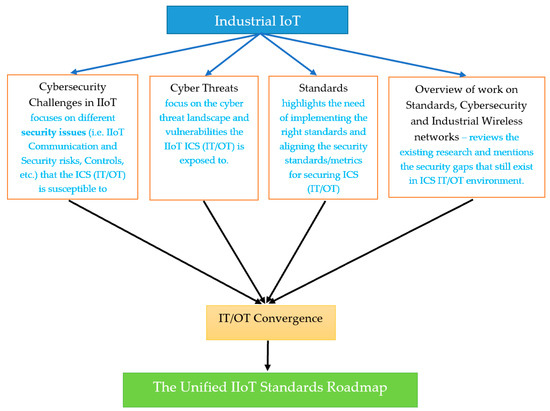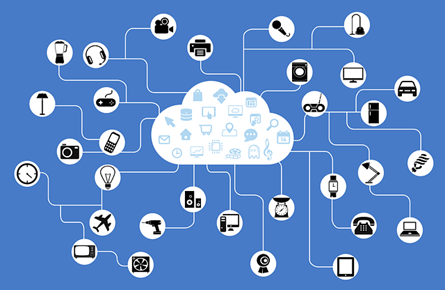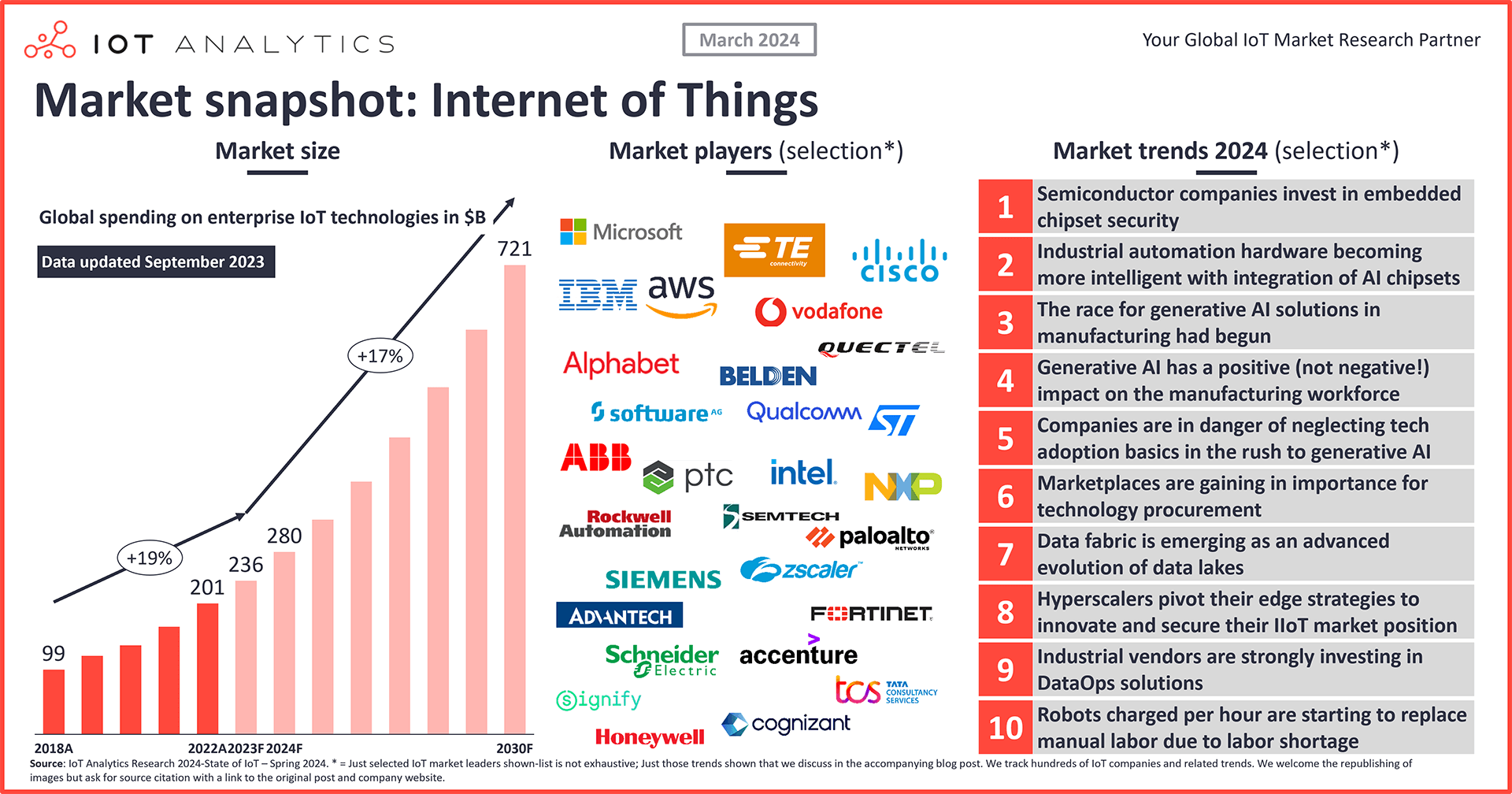
Industrial IoT Network Security Trends: Unveiling Future Insights
Imagine the world of tomorrow where machines, sensors, and devices communicate seamlessly, making industries smarter and more efficient. That’s the promise of the Industrial Internet of Things (IoT).
But with this connectivity comes a critical concern: security. How do you ensure that your industrial systems remain safe from threats and vulnerabilities? We will explore the latest trends in industrial IoT network security that you need to know. Whether you’re an industry professional or just curious about the future of technology, understanding these trends is vital.
You’ll discover how cutting-edge security measures are shaping the future and why they are crucial for protecting your operations. Get ready to delve into the essential insights that will keep your network secure and your peace of mind intact.

Emerging Threats In Industrial Iot
Industrial IoT devicesface many threats. These threats are growing fast. Cyber attacksare common. Hackers target weak systems. They want valuable data. They often use malwareto attack. Malware can harm devices. It can steal information. Ransomwareis another threat. It locks data. Users must pay to unlock it. Many factories face these dangers.
Network breachesare serious. They can stop production. Breaches can cost money. They can damage reputation. Strong security is vital. IoT networksneed protection. Experts recommend regular checks. They suggest updates often. Firewallsand encryptionhelp. They keep data safe. Factories must stay alert.
Role Of Ai In Iot Security
AI helps protect IoT devicesfrom cyber attacks. It detects unusual behaviorquickly. Devices send data to AI systems. AI checks this data for potential threats. AI systems learn from past attacks. They become smarter over time. AI can predict future risks. This keeps devices safe.
AI works with IoT sensors. Sensors gather information from the environment. They send this data to AI. AI analyzes it for security risks. AI then alerts users. It suggests actions to fix problems. This process is fast and efficient.
AI plays a key rolein securing IoT networks. It helps keep data safe. Protects devices from harm. AI continues to improve. It adapts as threats change. It is essential in modern security solutions.
Blockchain For Secure Networks
Blockchain technology helps make networks safe. It keeps data secure and private. Each block in the chain has important data. This data cannot be changed easily. This adds a layer of trust. It is like a lock that is hard to open without a key. Devices in a network talk to each other. They need to share information. Blockchain makes sure this information is safe.
Many industries use it to keep data safe. Factories and hospitals benefit a lot. It stops bad people from stealing information. It is like a guard at a door. Only the right people can enter. This keeps the network safe and sound.
Zero Trust Architecture
Zero Trust Architecture keeps data safe. It checks every access request. No one gets automatic trust. This method reduces risks. Trust is earned, not given. Every device and user must prove their identity. Hackers face challenges in this setup.
Networks are safer with Zero Trust. It stops unauthorized access quickly. Security teams monitor all activities closely. This ensures safe operations. Users need permission to access data. This keeps important information secure. Cyber threats find it hard to breach these defenses.
Edge Computing And Security
Edge computing brings data closer to devices. This helps in faster processing. Security is very important in edge computing. Devices can be vulnerable to attacks. Securing data at the edge is crucial. Encryption is a key method to protect data. It keeps data safe from hackers. Authentication ensures only trusted devices access the network.
Monitoring devices is necessary. It helps detect threats quickly. Firewalls can block harmful traffic. Regular updates keep security strong. Training workers about security is helpful. It reduces human errors. Backup systems save data from loss.
Edge computing improves network speed. Yet, it needs strong security measures. Protecting data at the edge keeps it safe. Devices need regular checks to stay secure.

Regulatory Changes Impacting Iot
New rulesare shaping how IoT devices work. Governments are making stricter laws. These laws ensure devices are safefrom hackers. Companies must follow these rules. They need to update their systems. These updates protect user data. If a company breaks a rule, it can face big fines. This makes companies more careful. They check their security often. They want to keep user data safe.
Security checks are now more common. Devices must pass these checks. If a device fails, it needs fixing. Better securityis a priority now. Companies spend more money on security. This helps stop data leaks. Strong rules mean better security for everyone. Users can feel safer using IoT devices.
Advancements In Encryption Technologies
Encryption keeps information safe. It changes data into secret codes. Only special keys can unlock these codes. New technologies make encryption stronger. Quantum encryption is a new trend. It uses quantum bits. These bits cannot be copied. This makes it very secure. Blockchain helps in keeping data safe too. It stores data in blocks. Each block is linked to the next. This prevents changes to the data. Artificial intelligence helps find threats fast. It watches over networks and spots problems. AI learns and improves over time. Machine learning helps AI understand better. It sees patterns and predicts risks. Encryption is important. It protects our information from bad guys.
Collaborative Defense Strategies
Working together makes networks safer. Companies join forces to protect data. They share tools and knowledge. This helps fight cyber threats. Teamwork is key in security. Everyone plays a part in defense.
Sharing information is important. It helps find weak spots. With shared data, threats are easier to see. Quick actions stop attacks early. The network stays strong and secure.
Trust is important in defense. Companies must trust partners. Honest communication builds this trust. It makes collaboration smoother. Strong relationships lead to better security. Networks become safer with trust.
Future Security Innovations
Security innovations are growing fast. They are making our networks safe. New tools are here to help. AI is a big helper. It can find problems quickly. This keeps data safe. Smart devices are also helping. They talk to each other. This makes networks strong.
Cloud security is getting better. It keeps information safe online. Blockchain is also useful. It stores data safely. No one can change it. Encryption makes data secret. Only the right people can see it. These tools make sure that information is safe.
Companies need to stay updated. Training is important. Workers learn about new threats. This helps keep the network secure. Regular checks are also needed. They find weak spots in the system. Fixing them keeps everything safe.

Frequently Asked Questions
What Is Industrial Iot Network Security?
Industrial IoT network security involves protecting connected devices in industrial settings from cyber threats. It ensures data integrity, confidentiality, and availability. As industries adopt IoT, robust security measures become crucial to prevent breaches, protect sensitive information, and maintain operational continuity in complex industrial environments.
Why Is Iot Security Important For Industries?
IoT security is vital to safeguard industrial systems from cyber attacks. It prevents unauthorized access, data theft, and operational disruptions. Ensuring security helps maintain safety, reliability, and efficiency in industrial processes, reducing risks and potential financial losses associated with cyber incidents.
How Can Industries Enhance Iot Network Security?
Industries can enhance IoT security by implementing encryption, regular updates, and strong authentication. Monitoring network traffic and conducting security audits are essential. Employing security protocols and training staff on best practices also help in mitigating potential security risks effectively.
What Are Common Iot Security Challenges?
Common challenges include device vulnerabilities, unsecured connections, and insufficient authentication methods. Cyber threats like ransomware and data breaches pose significant risks. Addressing these requires comprehensive security strategies, regular updates, and continuous monitoring to ensure network protection.
Conclusion
Securing industrial IoT networks is crucial for modern businesses. Threats evolve rapidly, requiring constant updates. Companies need strong security protocols. Regular audits help detect vulnerabilities early. Employee training boosts overall network safety. Collaboration with cybersecurity experts can enhance protection. Investing in security measures now prevents costly breaches later.
Staying informed about trends helps businesses adapt. Prioritize security for peace of mind. A secure network supports smooth operations and growth.
Read More:
- Noise‑Cancelling Headphones Comparison: Ultimate Guide
- Time Management Apps Compared: Boost Your Productivity
- Ai Chip Market Growth 2025: Unveiling Future Trends
- Best Cloud Storage Services 2025: Top Picks Revealed
- Essential Tech Gadgets for Digital Nomads: Must-Have Tools
- Vr Hardware Cost Analysis: Unlocking Budget Insights
- Top Productivity Tools for Remote Teams: Boost Efficiency
- Ergonomic Home Office Setup Tips: Boost Comfort & Productivity


